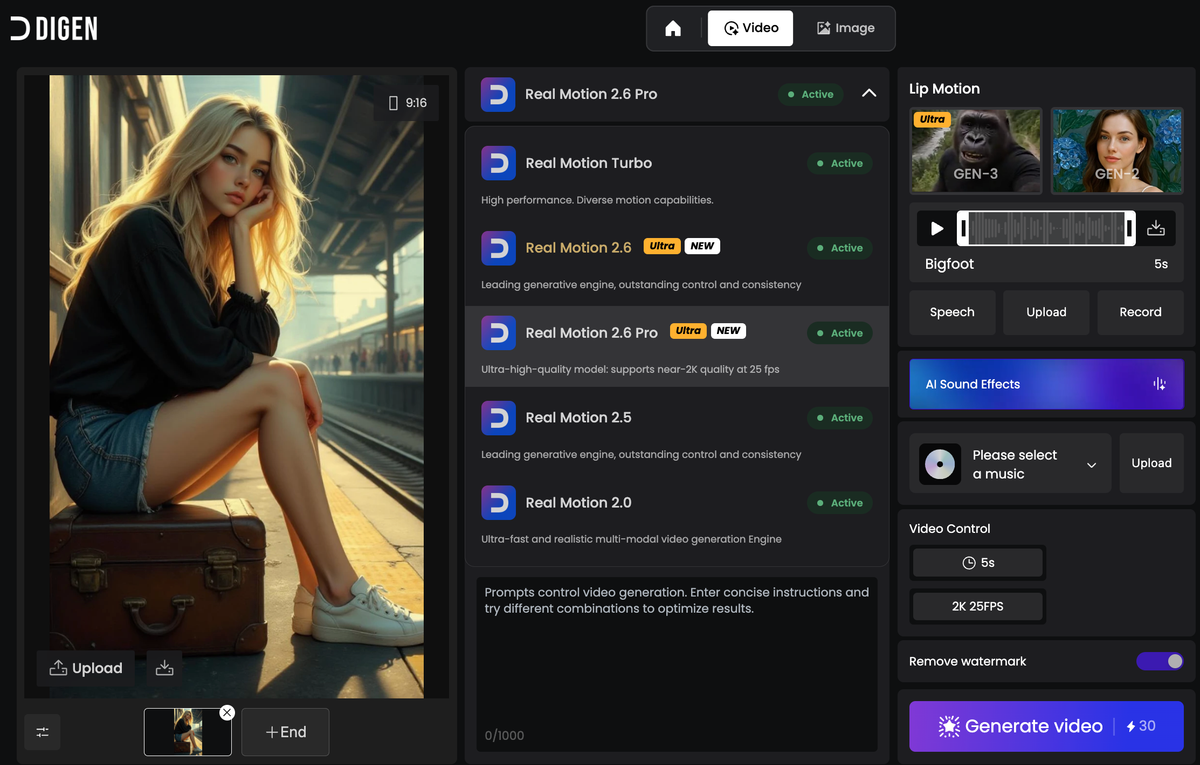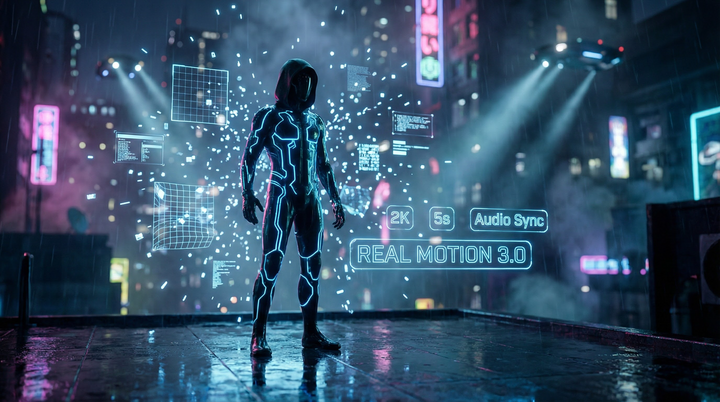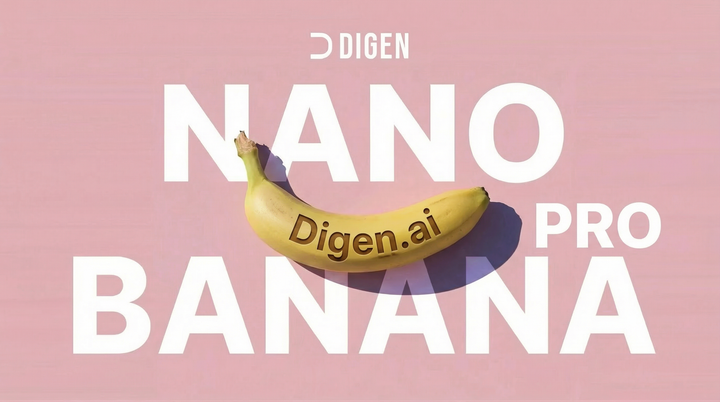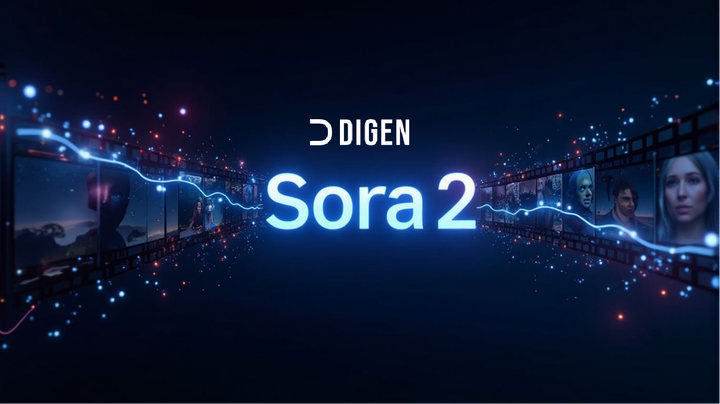2.6 Pro vs. 2.6: A New Standard for Cinematic Control in AI Video

2.6 Pro marks a generational leap over 2.6—not just in resolution or speed, but in creative fidelity. Built on a Mixture-of-Experts (MoE) diffusion architecture, trained on a vastly expanded visual-motion dataset, and distilled into a lean 5-billion-parameter hybrid model (2.6 Pro-TI2V-5B), it delivers 720p@24fps video on a single RTX 4090—with unprecedented adherence to cinematic direction.
For the first time in open-weight video generation, your prompt isn’t just inspiration—it’s a shot list.
🔬 Core Upgrades: 2.6 vs. 2.6 Pro
| Feature | 2.6 | 2.6 Pro |
| Architecture | Dense diffusion | MoE diffusion: High-noise and low-noise experts hand off mid-denoising |
| Visual Quality | Acceptable, but prone to blurring and inconsistent lighting | Sharper frames, fewer artifacts—MoE preserves global coherence while refining micro-details |
| Motion Handling | Struggles with complex or fast camera moves; multi-object scenes often break | Stable execution" of whip pans |
| Local Deployment | Requires ≥16GB VRAM for usable quality | Runs at 720p on 8GB VRAM with offloading—ideal for prototyping |
| Camera Language | Often ignores or misinterprets motion verbs | Faithfully executes precise cinematographic instructions |
💡 Why MoE Matters: Early denoising maintains scene structure; late-stage experts refine texture, lighting, and motion. The result? Cinematic integrity without sacrificing detail.
🎥 Real Prompt Showdowns: Same Words, Different Realities
Below are identical prompts rendered by 2.6 and 2.6 Pro. The difference isn’t just quality—it’s creative control.
Neon Drift (Cyberpunk Tracking Shot)
Prompt:
"A rainy night in a dense cyberpunk market, neon kanji signs flicker overhead. The camera starts shoulder-height behind a hooded courier, steadily tracking forward as he weaves through crowds of holographic umbrellas. Volumetric pink-blue backlight cuts through steam vents, puddles mirror the glow. Lens flare, shallow depth of field. Moody, Blade-Runner vibe."
- 2.6: Tracking drifts off-subject; background lacks parallax; lighting feels flat.
- 2.6 Pro: Smooth, locked tracking; accurate volumetric glow; puddle reflections and holograms rendered with depth.
Alpine Reveal (Dolly + Tilt)
Prompt:
"Extreme close-up of a mountaineer’s ice axe biting into frozen rock. Camera dollies back and tilts up simultaneously, revealing the climber and a vast sunrise-lit alpine ridge behind him. Crisp morning air, golden rim-light, subtle lens flare."
- 2.6: Ignores camera motion entirely—remains a static close-up.
- 2.6 Pro: Executes synchronized dolly-out and tilt-up, revealing the full scene as scripted.
Aquatic Ballet (360° Orbital)
Prompt:
"An orca breaches in crystal-clear Arctic waters. Slow 360° orbital shot around the soaring whale as droplets hang suspended. Soft polar sunset lights the scene in pastel pinks and blues; cinemagraphic HDR."
- 2.6: Respects slow motion but completely ignores orbital motion.
- 2.6 Pro: Smooth 360° orbit with suspended droplets and accurate polar lighting.
🎯 Comprehensive Camera Motion Benchmarks
Pan Left/Right
Prompt:
"A low angle shot of a jazz pianist... Camera pans left to... a girl with pigtails playing trumpet."
- 2.6: Pan direction random; motion often jerky or discontinuous.
- 2.6 Pro: First-try directional control—change “left” to “right,” and it obeys.
Note: Even “whip pan” remains challenging, but 2.6 Pro’s output is significantly smoother than 2.6.
Dolly In / Dolly Out
Prompt (Dolly Out):
"Walter White sits in a yellow suit... Camera dollies out. Background: abandoned factory, light through windows..."
- 2.6: Cannot execute dolly-out—only dolly-in works reliably.
- 2.6 Pro: Both dolly-in and dolly-out succeed on first attempt, with natural spatial expansion.
Tilt Up
Prompt:
"Close-up of mountaineer’s boots... Camera slowly tilts up, revealing full body and distant peaks."
- 2.6: Tilt effect weak or absent.
- 2.6 Pro: Fluid upward reveal with correct pacing and framing.
Crash Zoom
Prompt:
"Man in leather chair... Camera rapidly zooms in on his face. He smirks."
- 2.6: Zoom causes visual glitches or frame jumps.
- 2.6 Pro: Clean, comedic crash zoom—ideal for dramatic or humorous emphasis.
Camera Roll (360° Rotation)
Prompt:
"Overhead shot of a man asleep at his desk... Camera rolls in full 360 motion."
- 2.6: After dozens of tries, still fails to complete a full rotation.
- 2.6 Pro: Perfect 360° roll on first generation—ideal for disorientation or surreal sequences.
Pull Back (Already Strong in 2.6)
Prompt:
"Close-up of battle-worn samurai... Camera pulls back to reveal foggy battlefield and fallen warriors..."
- 2.6: Already handled well.
- 2.6 Pro: Even smoother motion, richer atmospheric detail (e.g., swirling autumn leaves).
Tracking Shot (Cyberpunk)
Prompt:
"Camera follows a hooded figure through a neon-lit market... weaving through crowds..."
- 2.6: Moderate success, but subject drift occurs.
- 2.6 Pro: Locked tracking with dynamic foreground/background separation.
📝 Prompt Engineering: The 2.6 Pro Framework
Ideal length: 80–120 words
Golden rule: Under-specify → MoE fills in “cinematic defaults” (sometimes great, often random). Over-specify camera verbs + lighting → get predictable, director-level results.
Structure Your Prompt Like a Shot List:
- Opening Frame – What the viewer sees first
- Camera Motion – Use precise verbs: dolly out, tilt up, whip pan left, 360° orbit, crash zoom
- Reveal / Payoff – What the motion uncovers
- Lighting & Mood – Golden rim-light, volumetric backlight, moody cyan shadows
- Style Reference – Blade Runner, Dune, Soderbergh handheld
- Negative Prompt – Now consistently enforced
🔻 Recommended Negative Prompt (Default)
text1bright colors, overexposed, static, blurred details, subtitles, style, artwork, painting, picture, still, overall gray, worst quality, low quality, JPEG compression residue, ugly, incomplete, extra fingers, poorly drawn hands, poorly drawn faces, deformed, disfigured, malformed limbs, fused fingers, still picture, cluttered background, three legs, many people in the background, walking backwards
✅ New in 2.6 Pro: Terms like “static” now effectively suppress frozen frames—critical for motion reliability.
🖥️ Deployment: Local, Lightweight, Powerful
2.6 Pro is available in two key variants:
2.6 Pro-TI2V-5B | 5B | Text-to-Video + Image-to-Video (hybrid) | Local creatorson RTX 3090/4090 |
2.6 Pro-14B | 14B | High-fidelity generation | Cloud renderingon A100/H100 |
Both integrate natively with ComfyUI, enabling modular pipelines for upscaling, frame interpolation, and motion refinement.
🎬 Final Word: Your Vision, Executed
2.6 Pro transforms AI video from inspiration tool to production partner. For the first time in open-source, you can write a prompt like a cinematographer—and get back a clip that matches your intent.
Spend your words on camera verbs and light. Let the MoE engine handle the rest.
Happy prompting! 🎥




Comments ()